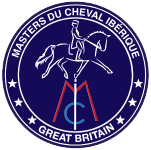The MCI GB is committed to the welfare of horses through high quality training and good horsemanship at every level.
We support the Charter For The Horse which was introduced by the BEF in March 2024 giving a unified approach to safeguarding our equines and equids. At the heart of the Charter are the internationally recognised ‘three Fs’ of freedom, friends and forage, and the five domains model (Mellor et al., 2020) which cite nutrition, physical environment, health, behavioural interactions and mental state as the crucial factors for an animal’s positive experience.
The Charter for the Horse is a pledge to be adopted by all across the equestrian sector to underpin our commitment to safeguarding the mental and physical wellbeing of our equids. All 19 of the British Equestrian member bodies have signed up to the Charter and will collectively work towards the highest standards in the six key areas of:
- Empathy
- Care
- Respect
- Consideration
- Ethics
- Learning


